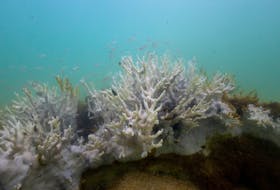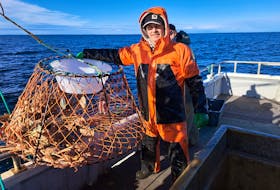All season-long, we’ve proudly displayed our catch of cod, squinting into the camera lens as the sunlight camouflages a backdrop of saltbox houses and fishing sheds dotting the land. It’s a beautiful thing — except when people break the rules.
Sadly, some fishers exceed the limits, taking more than five fish per day (or more than 15 when three or more share a boat), sometimes by taking multiple boat trips a day. Others practice “high-grading,” discarding fish to improve the chances of securing bigger and better catch.
This fall, we’ll get a chance to see if these violations are beginning to trend down. Last year around this time, Fisheries and Oceans Canada (DFO) reported violations in the recreational groundfish fishery had dropped by 56 per cent — 44 violations in 2017 as compared to 78 in 2016. Most of these violations were for overfishing and high-grading activities. But in 2017, fewer people participated in the recreational groundfish fishery — about 20 per cent fewer than the year previous in 2016, reported DFO. Ice floes lasting longer into the season, inclement weather and poor quality cod led fewer people to venture out.
Related story:
N.L. fishing violations net more than $23,000 in fines (2017)
We are in wait-and-see mode to see what formally comes from DFO’s reports of the 2018 season, but there are complaints on social media and around coffee tables of similar abuses. In addition to the usual, there’s talk of cod fillets available for sale from the recreational fishery. By all means, share your fish, give it to friends and family who lack the means to take a trip out themselves.
But selling the fish ignores the hard work of licensed, commercial fish harvesters, who already earn less than a $1/lb, whether they harvest the highest quality cod (Grade A, $0.83/lb) or lowest (Grade C, $0.20/lb). Selling fish from the recreational fishery also undermines the point of this fishery, which goes beyond a leisure activity to celebrating the time-honoured tradition of handlining or jigging cod and putting fresh, local food on our tables.
I hesitate to share this next anecdotal claim of abuse in the recreational cod fishery, but here it is — cutting tongues of live cod, then releasing them back in the water. To put this in context, I’ve heard one commercial fisher say he’s caught cod in his gillnets with the tongues already cut (one cod this year, three last year). Another mentioned he was asked by tourists if this is a permitted practice. Forget for a moment cod tongues are not actual tongues — if cod could use them to speak, they might ask: “Is this the impression we want to make?”
Any and all abuses grant reasons to call for this fishery’s closure. We know the recreational groundfish fishery comprises a modest portion—about 15 per cent or 2,000 tonnes of total northern cod harvest (estimated in 2016 at 13,500t, nearly 80 per cent of which goes to the stewardship fishery). But abuses (and even talk of abuses) lead people to believe there’s more at stake.
Certainly, there’s reason to worry.
Cod is showing slow signs of a comeback from the brink of its collapse only a quarter of a century ago. Rebuilding the stock while allowing for a controlled fishery is possible, according to DFO, but we need to pay close attention to the stock now more than any time since the 1992 cod moratorium.
I suggest a name change for this fishery. For example, renaming it the “heritage fishery” — a term I learned from Kimberly Orren of Fishing for Success, a cod fishery program designed for at-risk youth and families.
Such a change would better encompass the reasons we fish—for recreation, culture and heritage, and food.
But doing so also brings the benefit of signalling the respect that’s due this fishery. Although it’s a small proportion of those who commit violations, their abuses are a black-eye in the face of our recreational groundfish fishery, the tourism and economy it supports and to all of us, the reasons we fish and the fish too. In the few days remaining in the recreational groundfish fishery this season, let’s treat it as the great privilege it is and let’s all fish accordingly.
Jennifer Verma
Ottawa

![['The stipulation for the food fishery, which reopens on\xa0Sept. 19 and runs until Sept.\xa027 is the same for visitors as it is for residents: five per person.']](https://saltwire.imgix.net/nw-17092015-photography_cod_webcc.jpg?cs=srgb&fit=crop&h=568&w=847&dpr=1&auto=compress%2Cenhance%2Cformat)







